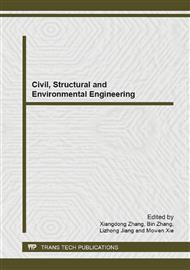p.3237
p.3247
p.3251
p.3256
p.3260
p.3268
p.3273
p.3277
p.3283
Online Reviews' Trustworthiness Analysis Based on Power-Law Distribution
Abstract:
In online shopping, studies on consumer reviews are mostly based on the Attitude Change Model. Illustrated from the perspective of perceived trustworthiness, however, it is not easy to measure and characterize the subjective perception of consumers. Starting from the inherent property of online reviews and based on the real data of 360buy which is the domestic large-scale B2C commerce website in China, this paper focuses on the interval distribution of consumer reviews and the data for statistical analysis. Research finds that the distribution of reviews interval can be depicted by the power-law function and there is a monotonically increasing relationship between power-exponent and the customers concerns with the commodity, the higher exponent, the attention consumer get. The findings give an objective basis to judge the credibility of online reviews. The relationship between power-exponent and the consumer attention has demonstrated the vital role of consumer attention in online shopping, and then the double parity between attention and exponent will effectively regulate the e-commerce market environment and promote its healthy operation. Tech Publications.
Info:
Periodical:
Pages:
3260-3267
Citation:
Online since:
November 2013
Authors:
Price:
Сopyright:
© 2014 Trans Tech Publications Ltd. All Rights Reserved
Share:
Citation:


